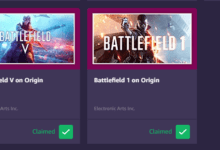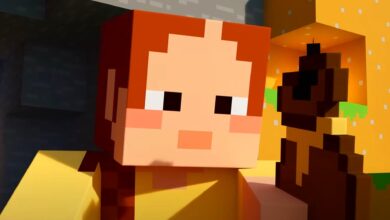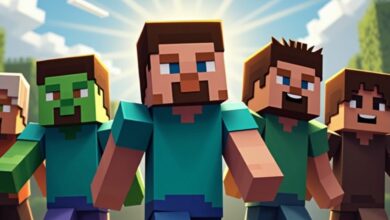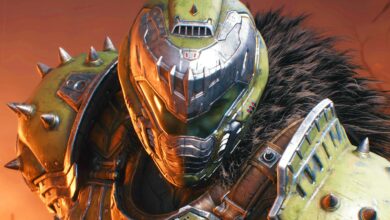The Second Battle of Fallujah is likely one of the most notorious battles within the historical past of the Iraq Warfare. The joint army effort of the USA and Iraqi Interim Authorities noticed US, British, and Iraqi forces mount an offensive on town in an try to take away the insurgents controlling it. What ensued was one of many bloodiest battles for the reason that Vietnam Warfare – an engagement that resulted in heavy losses for US troops.
The choice to show this brutal battle right into a first-person shooter sport was extraordinarily controversial when it was first proposed in 2009, inflicting the sport titled Six Days in Fallujah to be shelved for over a decade. Whereas the challenge lay dormant, Peter Tamte, founder and CEO at Victura, by no means gave up hope. Having listened to the first-hand tales of combatants on the bottom, Tamte had a narrative he felt he wanted to inform, and he knew that videogames have been the way in which to do it.
“In the early 2000s, the company I was running was making training systems for the US military and I got to know a lot of the guys that were going back and forth to Iraq and Afghanistan,” Tamte tells us. “One of them was blown up by a mortar in the battle of Fallujah and was transferred all over the world, from hospital to hospital, to patch him up. He called me and told me the stories of these things that had happened and I was embarrassed because I hadn’t heard about it. So he was the one that suggested the idea of creating a game to tell these stories.”
Untold tales
Fascinated by the tales of the fighters on the bottom in Iraq, Tamte and his staff set to work gathering testimonies of different Marines and troopers who have been current for the battle.
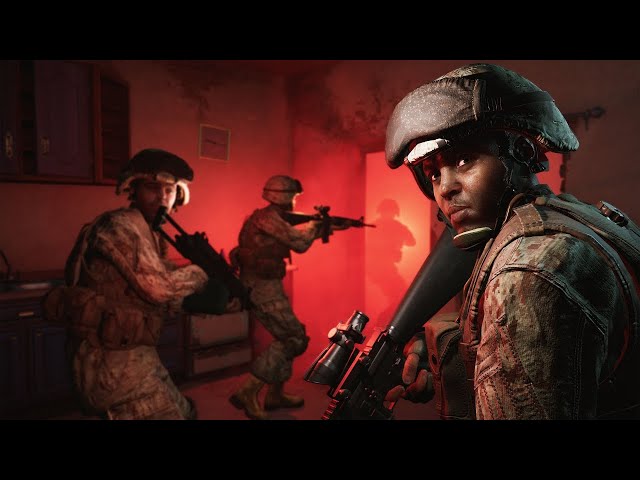
“I was in the barracks at Camp Pendleton, sitting down and recording these guys’ stories just months after the battle,” he says. “They have all these photographs they took during the battles, some of them had camcorders and gave us footage, we grabbed tactics documentation, and we also had a business making training systems. So we very clearly understood how the tactics are supposed to work.”
Tamte and his staff used this huge community of army experience to develop an idea for a army simulation sport extra life like and grounded than ever seen earlier than. Not content material with only one facet of the story, the event staff additionally labored with an in-house journalist to supply interviews with Iraqi troopers and civilians.
Constructing the unpredictable
The sport’s realism – or as some would possibly describe it, issue – is intrinsically tied to the staff’s dedication to creating an genuine expertise the place gamers really feel the concern, dread, and uncertainty of city fight. The depth of the gameplay borders on survival horror, with even the tiniest transfer carrying the potential of failure and loss of life.
“We want players to understand what it’s like to be a Marine because I think we all know we’re not getting that from Call of Duty, Battlefield, or Rainbow Six,” states Tamte. “They’re fantasy games at this point.”
“They call it a 360-degree battlefield,” he continues. “These Marines would clear a house, and 10 minutes later, insurgents would backfill it. There are no front lines, it’s up, down, below, and everywhere around you. Insurgents had three months to set up tunnels, create ambushes, booby traps – it was crazy.”
With a purpose to faithfully recreate this uncertainty, Victura’s developer, Highwire Video games, appeared to a creating know-how that has proved revolutionary in exploration and journey video games – procedural technology.
“We call it procedural architecture,” explains Tamte. “We’ve created lots of bespoke building blocks that are then assembled procedurally. So it all makes architectural sense, you just don’t know how it’s going to reassemble.”
Unpredictability can also be constructed into enemy conduct, utilizing know-how dubbed Block Scale AI.
“In many games, the enemies are basically slightly mobile turrets,” he provides. “They depend on players stepping on a trigger, which then activates a series of scripts depending on the circumstances. That doesn’t work in procedural generation. Instead, we’ve built a group of behaviors into each of the AI enemies based on stories we heard about battle-specific tactics.”
Boots on the bottom
Since its inception again in 2009, the sport has naturally undergone large adjustments. Some options have been minimize and lots of others added, however Tamte is fast to qualify that the early entry model of the sport won’t ship the entire imaginative and prescient that’s Six Days in Fallujah. The early entry model of the sport includes a set of missions, that are collectively launched by means of interviews with Marines, troopers, and Iraqis, and might be performed with three different gamers in extremely tactical co-op situations.
“The pieces that will come in the full release – and will be introduced throughout early access – will be more missions, times of day, weather, AI teammates, and AI civilians,” expands Tamte. “The two other big pieces are the campaign – full recreations of actual stories with narration and AI teammates – and our special operator missions.”
Six Days in Fallujah launches in early entry through Steam on June 22, with the total launch to observe at an unspecified date. Peter Tamte estimates its ETA to be somewhat greater than a yr out, however is cautious to not make any guarantees – it’s clear the person cares deeply in regards to the ultimate product doing justice to the Marines whose tales shaped its foundation.


